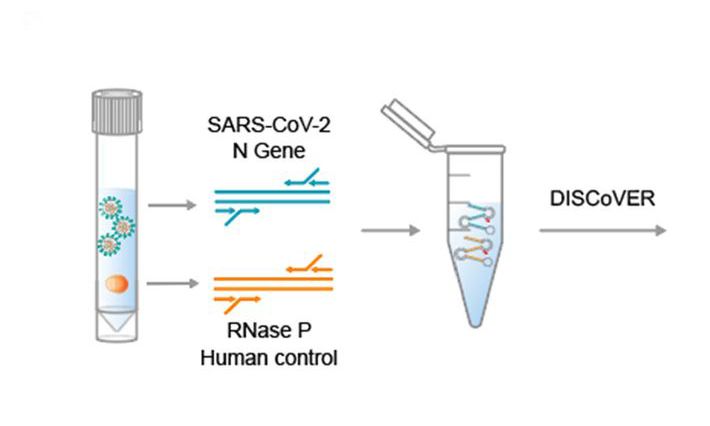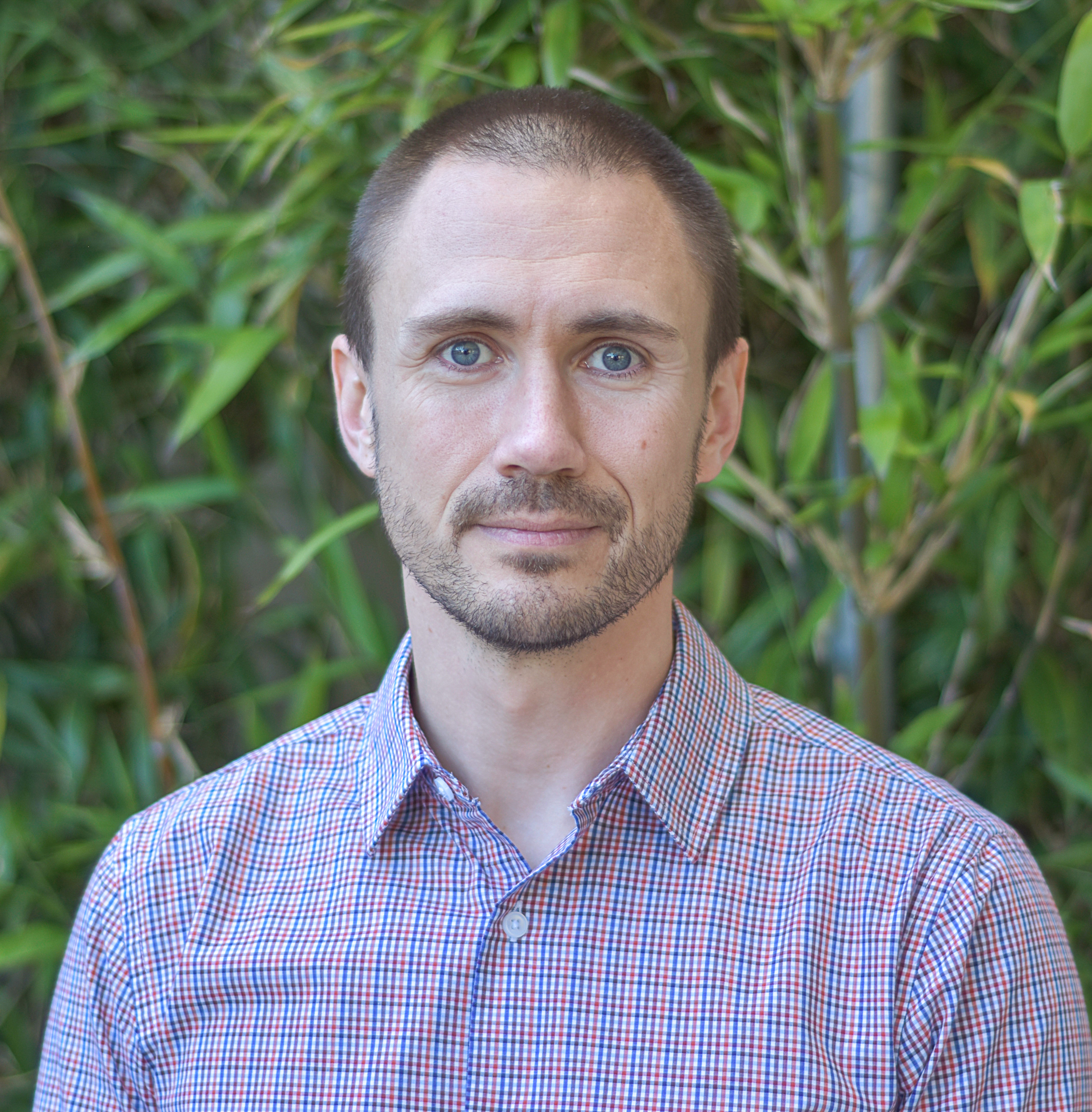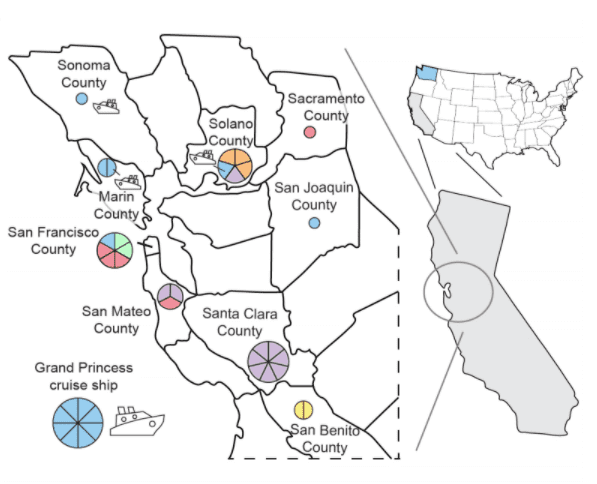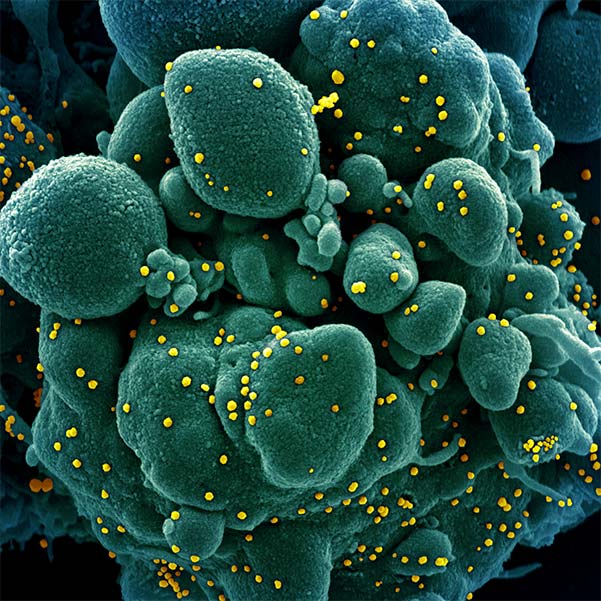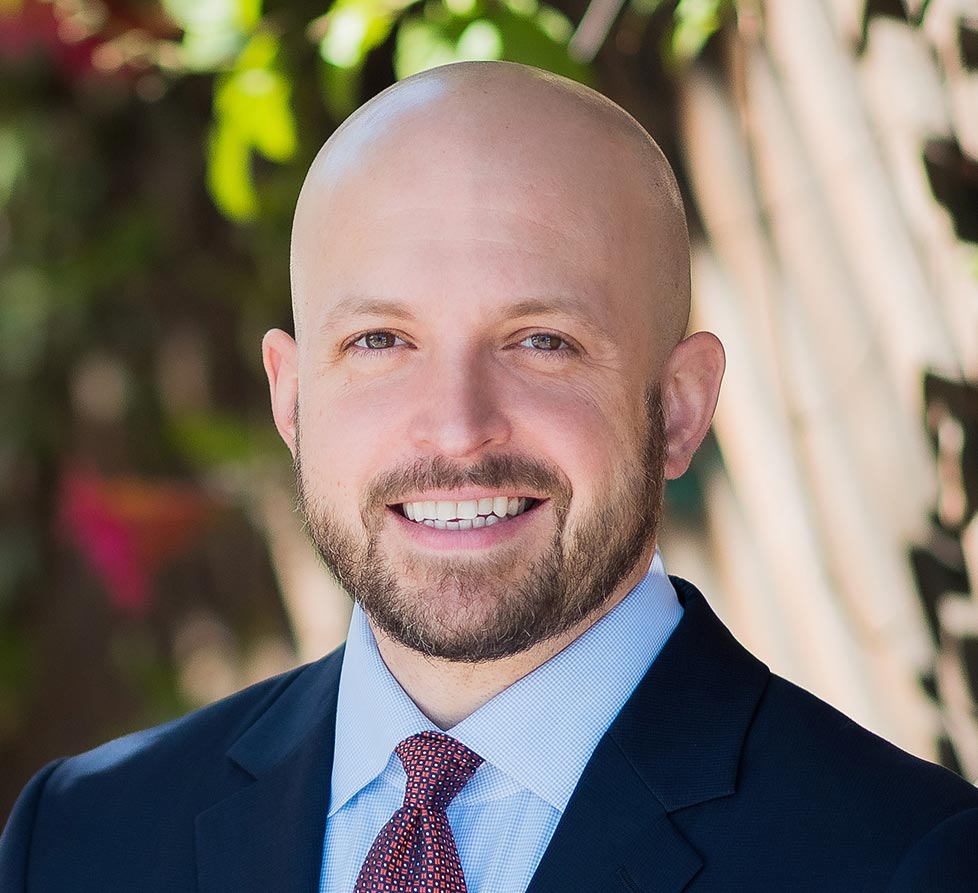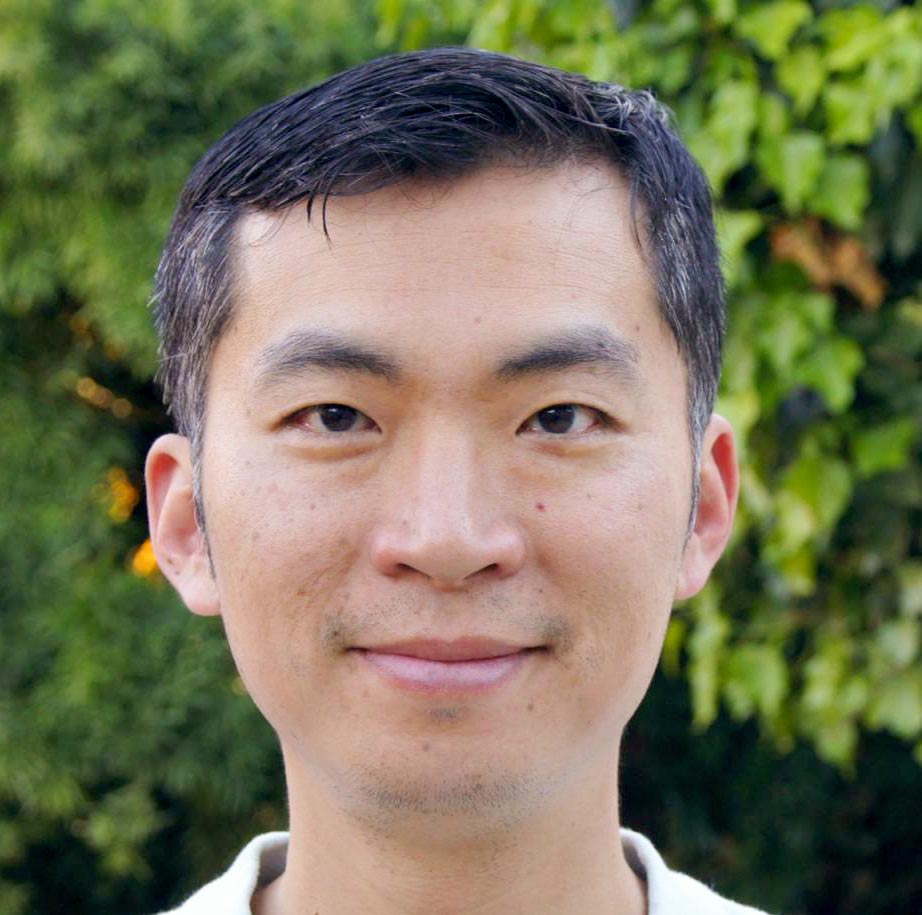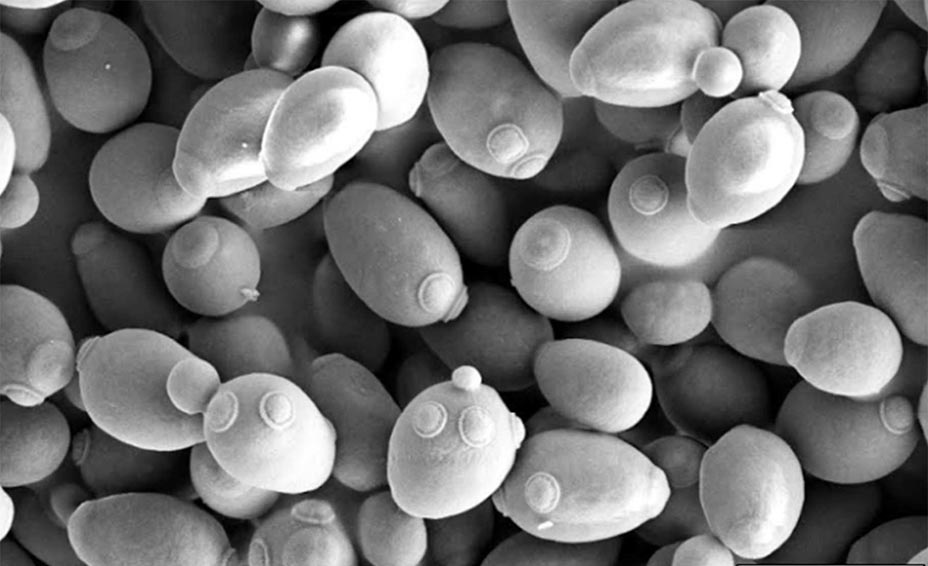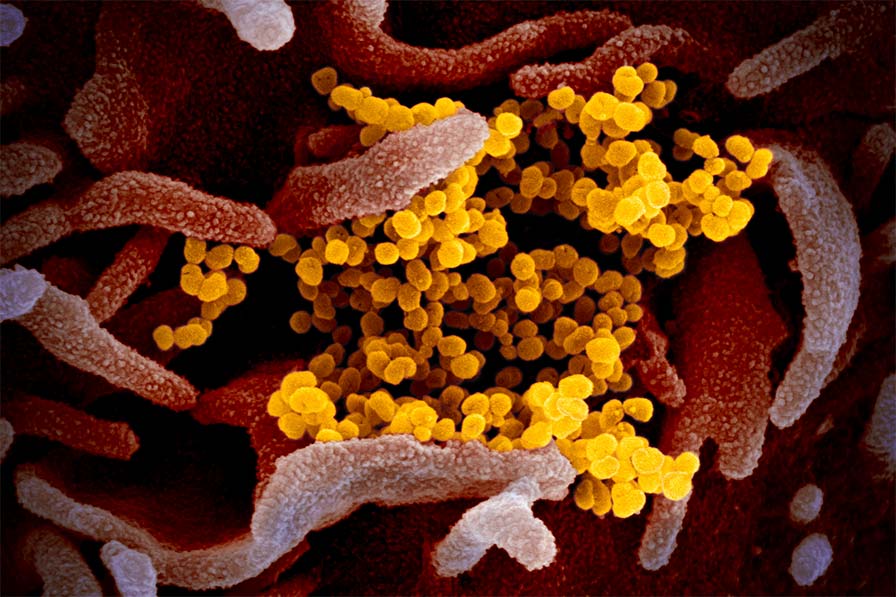Genomics
Institute
Epigenome editing: A new prophylactic COVID-19 therapeutic
We are developing a CRISPR-based immunity strategy that silences the host genes required for COVID-19 (SARS-CoV-2) pathogenesis and, in principle, can be broadly applied to protect against any virus.
SHARE:
Medical interventions that promote immunity to viruses, such as vaccines, are one of the most promising classes of antiviral therapies for COVID-19 and future viral pandemics. Problematically, it can take years to create, test, and deploy a vaccine.
We have developed a new immunity strategy that leverages a CRISPR-epigenetic-editing platform with key prophylactic properties. Our approach enables us to robustly and durably silence host proteins required for viral infection or pathogenesis. We are applying our technology, adapted from approaches to yellow fever, dengue and Ebola, to silence host genes required for SARS-CoV-2 pathogenesis. We are targeting host factors expected to be required by all SARS-like coronaviruses and so this approach should give broad protection against future coronaviruses. Our long-term vision is that this strategy can be rapidly programmed to silence human genes required for viral pathogenesis and thus protect against any virus.
This work is funded by the Laboratory for Genomics Research (LGR), a collaboration between UC Berkeley/UCSF (IGI) and GlaxoSmithKline.
Share this project:


